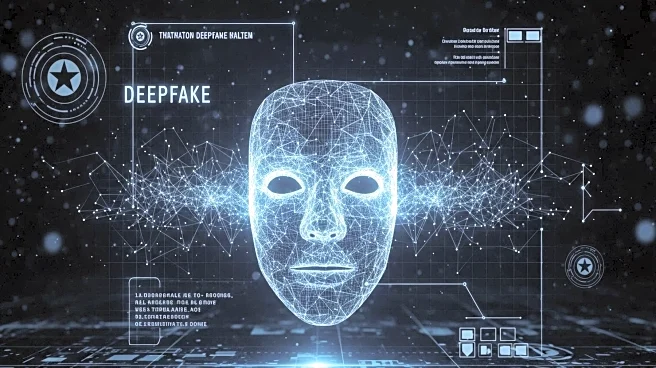What is the story about?
What's Happening?
A North Korean state-sponsored hacking group, known as Kimsuky, has utilized ChatGPT to create a deepfake of a South Korean military ID document, according to cybersecurity researchers from Genians, a South Korean firm. This artificial intelligence tool was employed to craft a fake draft of the identification card, making a phishing attempt appear more credible. The phishing targets included South Korean journalists, researchers, and human rights activists focused on North Korea. The email linked to malware capable of extracting data from recipients' devices. The U.S. Department of Homeland Security has previously identified Kimsuky as a unit tasked by the North Korean regime with global intelligence-gathering missions. This incident is part of a broader trend where North Korean operatives deploy AI in their intelligence-gathering work, including using AI tools to create fake identities and pass coding assessments for employment in U.S. Fortune 500 tech companies.
Why It's Important?
The use of AI tools like ChatGPT by North Korean hackers highlights the evolving nature of cyber threats and the sophistication of espionage tactics. This development poses significant risks to cybersecurity, particularly for industries and individuals targeted by such attacks. The ability to create realistic deepfakes and bypass security measures can lead to increased vulnerability for sensitive information and critical infrastructure. The incident underscores the need for enhanced cybersecurity measures and vigilance among potential targets, including journalists and researchers. Furthermore, it illustrates the broader geopolitical implications, as North Korea continues to leverage cyberattacks to gather intelligence and generate funds to support its regime, potentially undermining international sanctions and contributing to its nuclear weapons program.
What's Next?
In response to these developments, cybersecurity firms and government agencies may intensify efforts to counteract such sophisticated cyber threats. This could involve developing more advanced AI-driven detection and response systems to identify and mitigate phishing attempts and malware attacks. Additionally, there may be increased collaboration between international cybersecurity organizations to share intelligence and strategies for combating state-sponsored cyber espionage. Potential victims, such as journalists and researchers, may need to adopt stricter security protocols and remain vigilant against phishing attempts. The U.S. government and its allies might also consider diplomatic measures to address North Korea's cyber activities and reinforce sanctions aimed at curbing its nuclear ambitions.
Beyond the Headlines
The ethical implications of AI tools being used for malicious purposes are significant. As AI technology becomes more advanced, the potential for misuse increases, raising questions about the responsibility of developers and the need for regulatory frameworks to prevent abuse. The ability to create deepfakes and manipulate digital identities poses challenges for privacy and trust in digital communications. This incident also highlights the cultural dimension of cybersecurity, as it involves the targeting of individuals focused on human rights and political issues, potentially stifling free expression and activism.

















